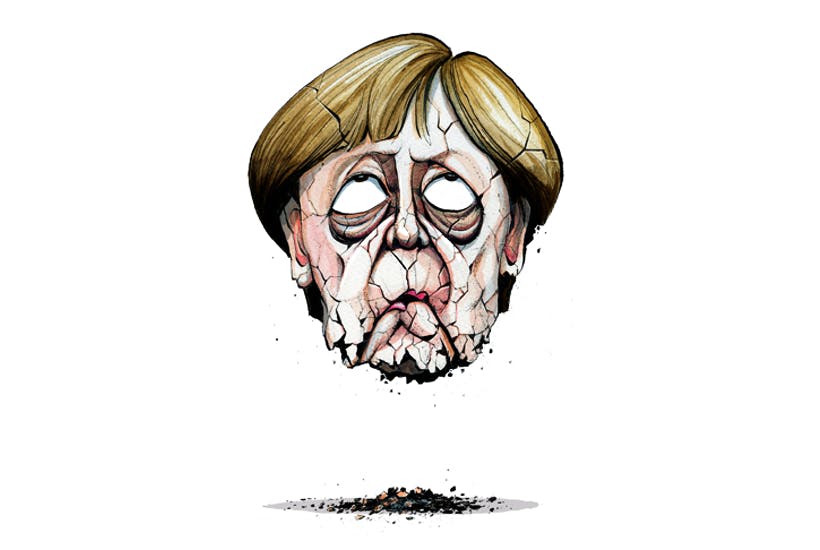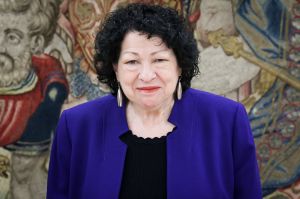Retirement sounds pretty nice. Britain’s Office of National Statistics says that pensioners spend an average of seven hours and 10 minutes a day on leisure activities. Over seven hours. That’s a lot of time for nice things. Yet the prospect of retirement can bring a certain dread. According to a YouGov survey, only around half of people about to retire look forward to it. The reality of having nothing to do is as terrifying as it is thrilling.
So how do you feel when you have not held any old job, but one that kept you busy 24/7, one that let you meet hundreds of people every day and one that gave you an enormous sense of purpose? Angela Merkel faces that prospect. She has been the German chancellor for 16 years. No time for hobbies, no time for idle thoughts, no time for herself.
Yes, Merkel went on holiday trips with her husband Joachim Sauer. But a ‘vacation’ for the chancellor only meant no official appointments for three weeks. She could never switch her phone off and relax. When she traveled to her favorite holiday destinations such as South Tyrol for hiking, her phone could ring at any moment to call the holiday to an abrupt end.
But Merkel had a life before her chancellorship, an often forgotten fact given her now seeming omnipresence. Her studies as a quantum chemist is where she met her husband. After the Berlin Wall, she was elected to the Bundestag in 1990, rising to first minister only a year later as Helmut Kohl took her under his wing. The promotions never abated, culminating in her ascension to the chancellorship in 2005. Even her critics would agree that it is a job she has fully devoted herself to.
What will Merkel do when she retires? How will she confront the void? What will she do that is ‘fun’ for seven hours and 10 minutes each day? Not even Merkel herself seems to know.
Asked this very question during her last visit to the US, she fell silent for a moment and said that she would ‘not accept the first invitation that comes along’, by virtue of having ‘nothing to do… [where] nobody wants me anymore’. Instead, she would take some time to work out ‘what I’m really interested in’.
‘And then maybe I will try to read’, she continued, somewhat mundanely. ‘Then I will doze off because I’m tired.’ That sounds like a solid plan for a few hours, but then what?
One category of politicians Angela Merkel should certainly not look to for inspiration are former British prime ministers. They either depart the political scene so abruptly that they mistake bankers and venture capitalists for their friends or desperately try to stay relevant in increasingly less rare ‘interventions’.
Do her own countrymen provide better inspiration? Leaving her only living predecessor Gerhard Schröder and his Gazprom speed dial aside, some of the others spent their retirement in very dignified ways.
Konrad Adenauer, the first West German chancellor after World War Two, came to love roses in his retirement, describing it as ‘the most grateful and most beautiful flower there is’. The immaculate rose garden, in which he spent so much time after he left office in 1963, is still in full bloom today. If Merkel wants to pursue this option however, she might have to move, as her Berlin apartment is hardly hospitable to a gardening hobby.
She could look to others with long careers. The first German chancellor, Otto von Bismarck, is the only one to have been in office longer than Merkel. After 19 years at the helm of the nation state that he himself created, he was forced to resign by Kaiser Wilhelm II. Bismarck lived and died a bitter man, spending his twilight years writing furious commentary on politics after his reign. There could yet be an inner columnist in Merkel, but if there is, hints of it have so far been scarce.
The German press has speculated that Merkel may want to spend some time ‘experiencing’ West Germany, since she grew up on the other side of the Iron Curtain. While the suggestion is quaint, I can’t recall that Helmut Kohl or Gerhard Schröder were ever invited to ‘experience’ East Germany as a retirement hobby.
However she may fill her time, her current approach is healthy. She admitted that it will be hard to break the habit of worrying about the tasks in her in-tray. But then, ‘I will remember very quickly that things get done by others now. I think I will like that.’ Good for her.
This article was originally published on The Spectator’s UK website.


















